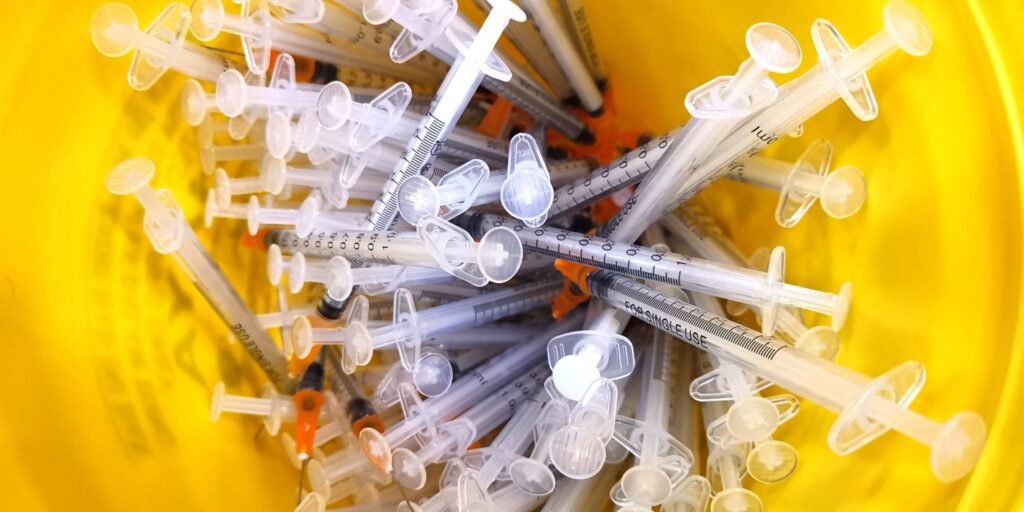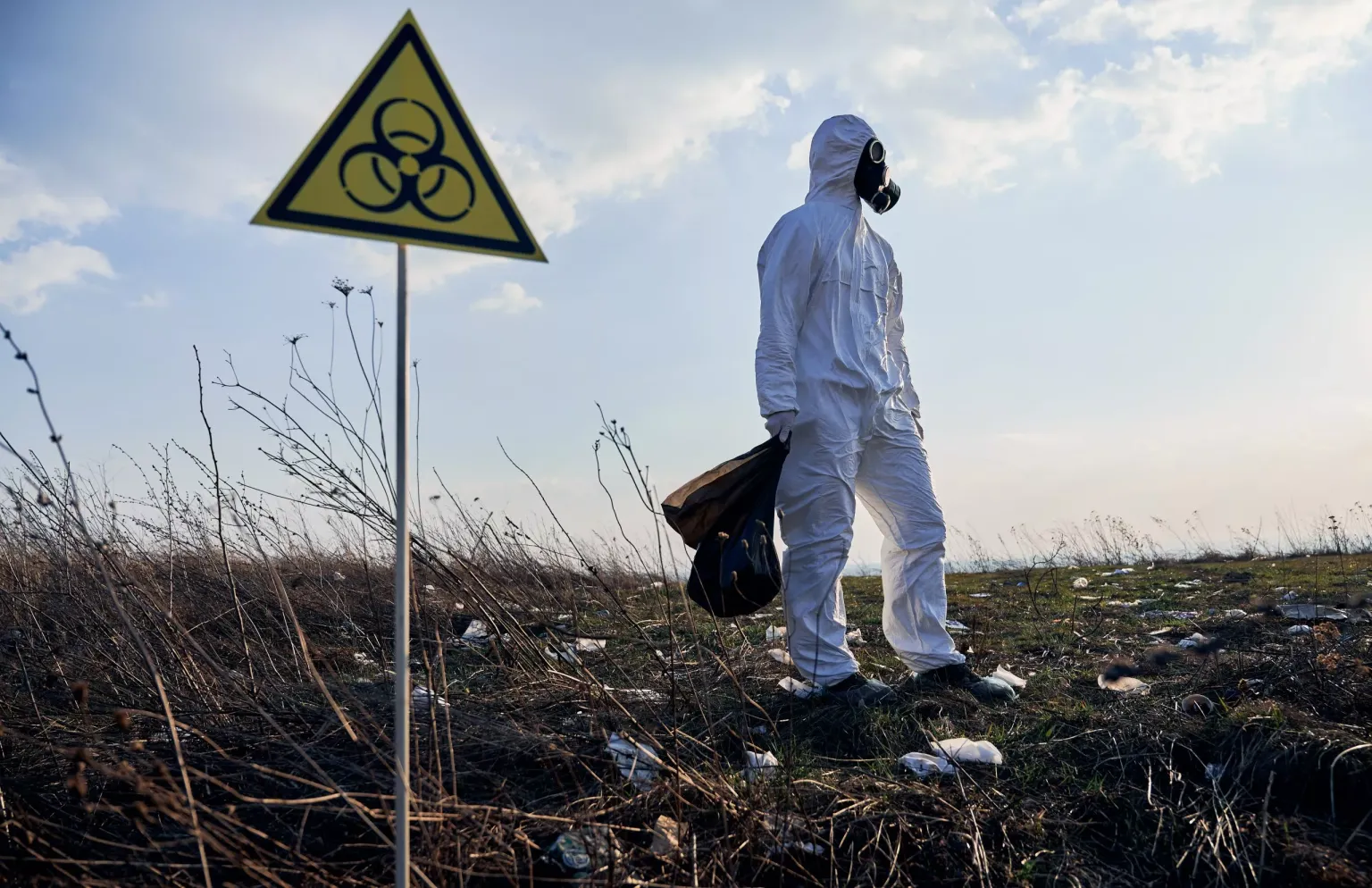Waste management is the process of handling, managing and disposing of waste materials. It is a critical aspect of environmental protection as it helps to keep our environment clean and safe.
The importance of hazardous waste management cannot be understated. It helps to reduce pollution, conserve resources and protect public health. It also creates jobs and supports the economy.
There are many different ways to manage waste, including recycling, incineration and landfill. The best approach depends on the type of waste being managed. With proper waste management, we can make a difference for the environment and the future of our planet.
What Is Waste Management?
Waste management is the process of managing, handling, and positioning of waste materials. It includes everything from reducing and reusing materials to recycling and recovering energy from waste.
The main goal of medical waste disposal management is to reduce the impact of waste on the environment. This includes reducing pollution, conserving resources, and protecting human health
There Are Many Different Ways To Manage Waste. Some Common Methods Include:
– Reducing the amount of waste produced in the first place
– Reusing or repurposing items instead of throwing them away
– Recycling materials into new products
– Incinerating or thermally treating waste to recover energy
– Landfilling waste in secure, carefully managed facilities
Each community has its own approach to waste management based on its needs and resources. What works in one area might not work in another. But there are some general principles that all bio hazard waste communities should follow:
– Collecting wastes safely and responsibly
– Transporting wastes to appropriate treatment facilities
– Treating wastes in an environmentally sound manner
– Disposing of wastes in a safe and responsible way
Why Is Waste Management Important?
Waste management is important for several reasons. First, it is necessary to protect the environment and human health. Second, it helps to conserve resources. Third, it can save money.
The most important reason to manage waste is to protect the environment. Improper waste management can pollute the air, water, and soil. This can lead to serious health problems for humans and animals. It can also damage plants and ecosystems.
Another reason to manage hazadous waste disposal is to conserve resources. For example, recycling paper saves trees. Recycling metal saves energy and minerals. And composting food scraps reduces the need for chemical fertilisers.
Finally, managing waste properly can save money. Landfills cost taxpayers money to build and operate. Incinerators cost money to build and operate. And both landfills and incinerators create pollution that costs money to clean up.
The Different Types Of Waste
There are four different types of waste:
- Hazardous waste – This is any kind of waste that is potentially harmful to human health or the environment. Hazardous wastes can include chemicals, oils, paints, batteries, and pesticides.
- Non-hazardous waste – This is any kind of waste that does not pose a threat to human health or the environment. Non-hazardous wastes can include paper, glass, plastics, and metals.
- Special waste – This is any kind of waste that requires special handling and disposal methods due to its hazardous nature. Special wastes can include medical waste, electronic waste, and radioactive waste.
- Industrial waste – This is any kind of solid or liquid waste that is produced by industrial processes. Industrial wastes can include sewage, manufacturing runoff, and mining residue.
How To Dispose Of Waste Properly?
Waste management is the process of disposing of waste in a way that is safe and environmentally friendly. There are many different ways to dispose of waste, and the best method depends on the type of waste you have.
For general household waste, the best option is to recycle as much as possible. This can be done by separating your recyclables from your other waste, and taking them to a local recycling centre.
Many municipalities also have programs in place for curbside recycling. If you have hazardous waste, it is important to dispose of it properly to avoid harming the environment or yourself.
Hazardous wastes include things like batteries, oil, paint, and chemicals. These should never be thrown in the trash; instead, they should be taken to a special facility for proper disposal.
Food waste can either be composted or thrown in the trash. If you choose to compost your food waste, you will need to set up a bin in your yard where you can store it until it decomposes.
Once it has decomposed, you can then use it as fertiliser for your plants. If you decide to throw your food waste in the trash, be sure to put it in a bag so that it doesn’t attract pests.
Finally, hazardous waste should always be recycled or disposed of at a special e-waste facility. This includes items like computers, TVs, cell phones, and printers. Many electronics contain harmful toxins that can pollute the environment if
The Benefits Of Recycling
We all know that recycling is good for the environment, but did you know that it also has many other benefits?
For one, recycling can help to reduce the amount of waste that goes into landfill sites. This is important because landfill sites are a major source of greenhouse gas emissions.
Greenhouse gases are release when organic matter decomposes in the presence of oxygen. The methane gas produce by decomposing organic matter is a particularly potent greenhouse gas.
Recycling can also help to save energy and resources. For example, when paper is recycle, it takes less energy to produce new paper from recycle material than it does from virgin tree pulp. Similarly, recycling aluminium cans uses 95% less energy than making cans from scratch.
In addition, recycling can create jobs and boost the economy. In the US, for example, there are over 1 million people employ in the recycling industry. What’s more, every tonne of paper that is recycle saves 17 trees!
So next time you think about throwing something away, remember that recycling could be the better option – for you and for the planet.
The most important thing to look for in a waste management company is a commitment to environmental responsibility. Make sure to ask about a company’s recycling and composting programs. Also, inquire about their landfill practices and whether they use renewable energy sources.
When choosing a waste management company, keep in mind your specific needs and budget. If you have a small business, you may not need the same level of service as a large corporation. Likewise, if you’re concerned about environmental sustainability, you may be willing to pay more for a green company.

What Is the Difference Between Hazardous Waste And Offensive Waste?
Hazardous waste is any solid, liquid, or gaseous waste that has the potential to harm human health or the environment. Offensive waste is any solid, liquid, or gaseous waste that does not pose a threat to human health or the environment.
8 Reasons to Use a Medical Waste Service (And 1 Reason Why Not To)
- Medical waste services can help you save money on disposal costs.
- Medical waste services can help you reduce your environmental impact.
- Medical waste services can help you reduce the risk of infection.
- Medical waste services can help you reduce the risk of cross contamination.
- Medical waste services can help you meet your legal obligations.
- Medical waste services can help you protect your staff and patients.
- Medical waste services can help you improve your reputation.
- Medical waste services can help you peace of mind.
Waste management is critical for protecting our environment. With the right waste management practices in place, we can reduce pollution, conserve resources, and create a healthier world for future generations.
The importance of waste management cannot be overstate, and I hope that this article has help to illustrate why that is the case.
Conclusion
Medical waste can be a hazard to both you and the environment if it’s not properly disposed of.
Hopefully this article has helped you identify where medical waste is located in your home or business so that you can take steps to properly dispose of it. If you have any questions, please feel free to contact us and we’ll be happy to help.



